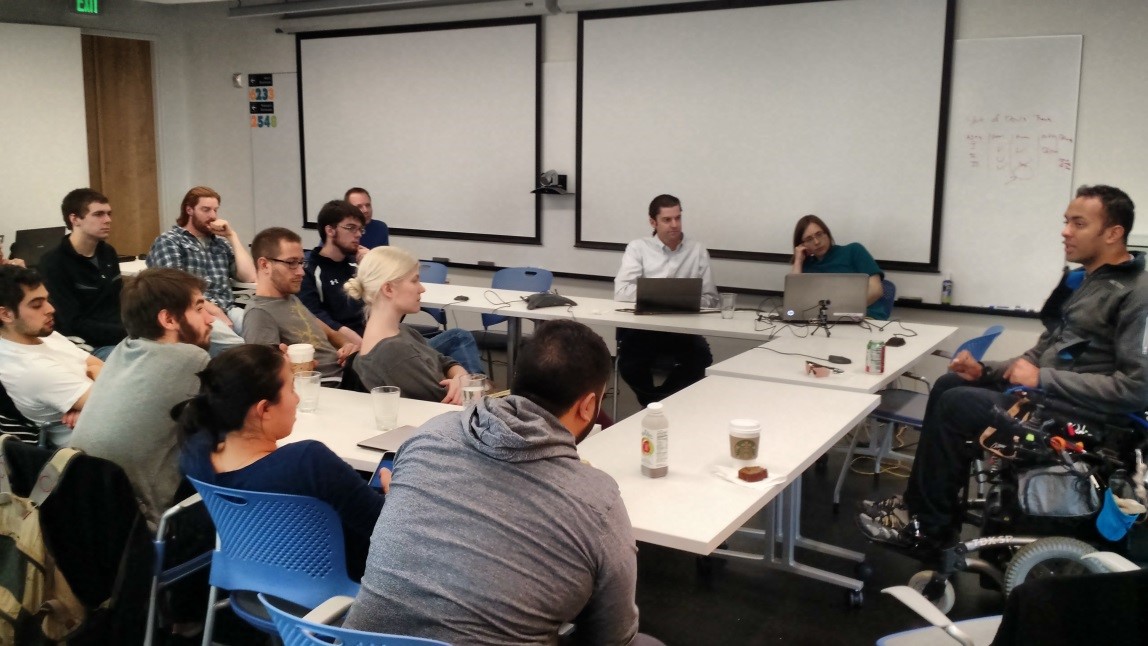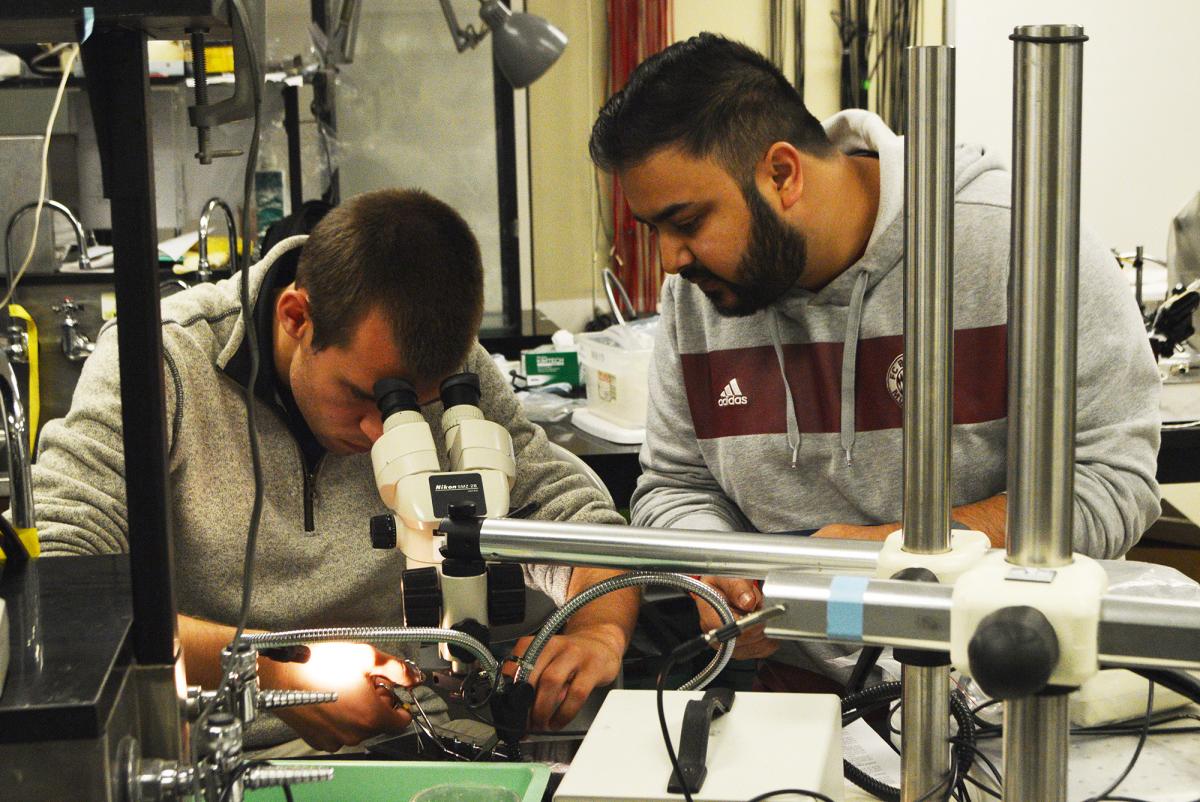Engage and Enable Blog
The aim of this blog is to show what’s happening at the Center for Neurotechnology among its faculty, student and staff members. To learn more about the center and its work, visit our Feature Stories page.
 Imagine being asked to solve a problem for someone who you've never met. You have the necessary skills, you've been given a detailed overview of the issues at-hand, and you understand what's at stake; however, you never have actually met anybody with the problem you're trying to solve. Given enough time and information, you might come up with an effective means of solving the problem, but it would be very difficult to anticipate all of the potential impacts of your solution.
Imagine being asked to solve a problem for someone who you've never met. You have the necessary skills, you've been given a detailed overview of the issues at-hand, and you understand what's at stake; however, you never have actually met anybody with the problem you're trying to solve. Given enough time and information, you might come up with an effective means of solving the problem, but it would be very difficult to anticipate all of the potential impacts of your solution.
 Neural engineering is a cutting-edge field that draws students from diverse backgrounds such as bioengineering, biochemistry, electrical engineering and applied math. One of the challenges inherent in the cross-disciplinary nature of this new and emerging academic domain is providing necessary education and training in the biological sciences to students from computational backgrounds such as engineering or applied math.
Neural engineering is a cutting-edge field that draws students from diverse backgrounds such as bioengineering, biochemistry, electrical engineering and applied math. One of the challenges inherent in the cross-disciplinary nature of this new and emerging academic domain is providing necessary education and training in the biological sciences to students from computational backgrounds such as engineering or applied math.
"What is a Neuroethics Roundtable?" you may ask. Simply put, it's a gathering of those who are actively engaged in the fields of neuroscience, neurosurgery and neural engineering to discuss, collaborate, and increase awareness and understanding of the ethical aspects of their work. The Roundtable is a place of commonality, providing a shared space for attendees to connect neuroethics to their own areas of expertise in science, medicine or research. Presentations given at the Roundtable inform attendees about what research the CSNE neuroethicists are working on, provide an opportunity to discuss current research in progress, and encourage reflection on how neuroethics can positively impact practical, day-to-day realities.
Most of us tend to think of our identity, our sense of self and who we are, as something that is relatively ingrained and unchanging; however, some people who receive neuroengineered implants, like those used in Deep Brain Stimulation (DBS), discover that their identity and sense of self are not as set in place as they might have previously thought. Even as implants help with disease symptoms, the devices can also cause shifts in personality, or make an individual question their control over their actions or moods.
